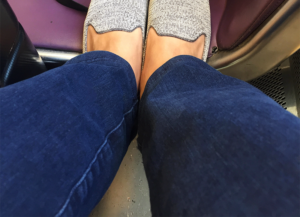 Kaitlyn has $78,000 saved for a property, but she isn’t sure whether she should buy a personal residence, a rental property, or both. How can she best use this money?
Kaitlyn has $78,000 saved for a property, but she isn’t sure whether she should buy a personal residence, a rental property, or both. How can she best use this money?
An anonymous listener wants to lower their housing expenses. Should she and her husband buy a cheaper property and turn their current home into a rental, or should they stay and pay off the mortgage as quickly as possible while saving for a downpayment on another property?
Alex is just getting started with financial independence and asks: how can you calculate your financial independence date, and how do you know how much you need to save to reach that number at a certain age?
Ell wants to know: what’s the difference between a high-yield savings account and a money market account, and how can you maximize the interest you earn in these accounts?
Jenn wants to know: is it possible for Canadians to find cash-flow positive real estate deals, either in Canada or the United States?
I answer these questions in today’s episode. Enjoy!
Ell asks (at 2:20 minutes):
I’m saving for a downpayment on a house and I want my money to earn more than it does at a traditional bank (0.01 percent). I have $40,000 saved and I’m not sure whether I should put it in a high-yield savings account or a money market account.
What’s the difference between a high-yield savings account and a money market account? How should I approach choosing one of those? How should I set up my bank accounts to maximize interest?
Kaitlyn asks (at 10:21 minutes):
I want to buy real estate in the next few years. I’m a public employee in Alaska and while I love my job, I can only save a few hundred dollars every month towards real estate. I live in a below market-rate studio which will soon be converted into a one-bedroom. I have $78,000 saved and I’m torn on how to use it. Here are my options:
- Buy an out-of-state property and save up for a personal residence
- Buy the personal residence and rent it out to offset costs while living in my inexpensive rental
- Do both (I’m not sure if I have enough cash for this)
I also don’t know how the purchase order will affect things like first-time homebuyers programs, interest rates, and other things I’m not thinking of. I want to be strategic since my income is so limited. What should I do?
Alex asks (at 28:50 minutes):
I’m 25 and just graduated from graduate school. I’m starting a job that pays $50,000 annually and I can’t wait to start saving for financial independence. I’m debt-free and I have an emergency fund.
I have two questions:
- If I want to retire with $1M, how can I calculate how much money I need to save and how many years I need to save for? I don’t have a company match, but I plan to max out my retirement accounts to achieve this.
- How can I calculate my financial independence date?
I want to continue living like a college student to keep expenses low, and I don’t plan to have a side hustle. Can you help me make sense of these timelines?
Anonymous “Amy” asks (at 48:27 minutes):
My husband and I are 32 years old and live in Austin, TX, where we purchased our first home in 2016. When we purchased it, we knew it wouldn’t be our forever home, but we didn’t know what to look for in an investment property, either.
In late 2018, we started on the path to financial independence (FI) and reduced our expenses. We’ve since paid off our debt (excluding our mortgage) and have six months of living expenses in our emergency fund. We also have a separate savings account for a downpayment on a rental property. This is the first year we’re maxing out our work retirement accounts and our Roth IRAs.
We live below our means, and we want to reduce our cost of living by moving to a cheaper house. The Austin area is pretty expensive – we purchased our 3 bed, 2 bath home for $295,000. These are the options we’re considering:
- Moving to a cheaper home in the $200,000 range and renting our current home for .6 percent of its total value in monthly rent. We’d hold onto it and sell in a few years for a better profit. Our home is currently valued at $310,000.
- Staying in the house, paying off the mortgage quicker, and saving for a downpayment on a rental property.
Our goal is to reach FI through investments and rental properties. We don’t have any rentals, and buying a cheaper personal residence would delay our rental property plans. We could rent our current home, but not at one percent. We could also sell our home, but we think the property will continue to increase in value as more developments are made in the area. What should we do?
Jenn asks (at 1:04:11 minutes):
Do you have any case studies or recommended blogs for Canadian real estate investing? The housing prices in Canada are substantially higher than in the United States. Is it possible for Canadians to buy cash-flow positive real estate, either in Canada or in the United States?
Resources Mentioned:
- CNN millionaire calculator
- Fidelity retirement calculator
- Financial Mentor calculators
- Interview with Morgan Housel
Thanks to our sponsors!
Radius Bank
Do you want to earn cashback with a debit card? Then check out Rewards Checking, from Radius Bank. They’re offering 1.5% cashback on food delivery, entertainment, social good, and health through the end of 2020. There are no fees, and you get unlimited one percent cash back on all other debit card purchases. To get started, head over to radiusbank.com/paula.

My Betabrand pants are comfortable for travel days!
Betabrand
Most of us find ourselves in situations where we need to wear dress pants, whether it be for work, a conference, or a meeting. If only you could wear comfortable pants to everything, right? Well…now you can! Betabrand offers dress pant yoga pants, and they’re as awesome as they sound. Check out betabrand.com/paula and get 30% off your first purchase.